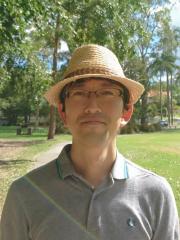Dr Tatsuya Amano

Researcher biography
I am primarily interested in how we, as scientists, can make meaningful contributions to halting and reversing the ongoing global biodiversity crisis. I am particularly committed to tackling gaps in our knowledge needed for biodiversity conservation, focusing on the following three aspects.
(i) Identifying gaps in existing information and their drivers: I have been working on how information on biodiversity is distributed over space, time and taxa, and what causes the existing gaps in information availability.
(ii) Overcoming information gaps with modelling approaches: I have been applying modelling approaches to better inform conservation initiatives through the use of available, imperfect data. For this I have intensively worked on assessing long-term changes in global waterbird diversity.
(iii) Bridging the research-implementation gap: I am also keen to provide scientific information for conservation in a more accessible way and have been involved in the Conservation Evidence project as a statistical editor, with the aim of contributing to the implementation of evidence-based decision-making in conservation.
I have recently started an ARC-funded project, which incorporates the above three aspects in order to understand the consequences of language barriers in biodiversity conservation (the translatE project: translatesciences.com). The project aims to assess the importance of scientific knowledge that is available in non-English languages, understand how language barriers impede the application of science in decision-making, and devise solutions for exchanging information across languages in an effective manner.
| Featured projects | Duration |
|---|---|
| CBCS 2023 Small Grants Scheme: outcome announced |
